#extreme anti-environmentalism
Text
« [T]here’s a existential threat: It is climate. We have a crazy SOB like that guy Putin and others, and we always have to worry about nuclear conflict. But the existential threat to humanity is climate. »
— President Joe Biden at a campaign event in San Francisco on Wednesday. From the White House Press Office.
Compare Biden's comments on climate with Trump's intention to go hog-wild with fossil fuel when he becomes a dictator...
"I want to drill, drill, drill.”
A second Trump term would be "horrific" for the planet.
‘In a word, horrific’: Trump’s extreme anti-environment blueprint
Also, that "crazy SOB" Vladimir Putin is doing significant damage to the environment with his war of aggression against Ukraine that started two years ago Saturday.
Ukraine: How the war is poisoning the environment
Russia must pay for the environmental catastrophe it's causing in Ukraine.
In addition to severe environmental damage caused by the war, Putin's Russia is also one of the world's top fossil fuel producers. Putin and a second Trump term could push this planet over the edge.
BREAKING NEWS: Several hundred new sanctions against Russia were just announced by the White House.
US targets Russia with more than 500 new sanctions
#climate change#existential threat to humanity#climate policy#the environment#joe biden#election 2024#a second trump term#donald trump#extreme anti-environmentalism#republicans#fossil fuels#vladimir putin#putin is a crazy sob#владимир путин#путин хуйло#путина в гаагу!#путин - сумасшедший сукин сын#путин разрушает окружающую среду#военные преступления#экологическая катастрофа#руки прочь от украины!#геть з україни#екоцид#слава україні!#героям слава!#new sanctions against russia
21 notes
·
View notes
Text
there's anti psych. and then theres people who think they're anti psych bc they think the term anti psych is literal but they are actually just really ableist and/or more in line with conservative beliefs regarding mental health recovery than anything else.
#.txt#its so fucking annoying seeing ppl go into posts about anti psych on their soap box saying therapy and meds are all placebo and nothing els#lmfao.#antidepressants dont work for most ppl bc its not the effective treatment for environmental factors. not bc it doesn't do anything.#antidepressants are also extremely versatile in use. and its treatment for other conditions can improve depression#you're viewing depression and treatment of it in just as shallow of a way that shitty psychiatrists do but in the other direction#so congratulations#id say having antidepressants prevent my migraines has done absolute fucking wonders for my depression and in terms of wanting to be alive#so 🤷♀️#i hvae so much to fucking say about antipsychotics but thats for antoher time
2 notes
·
View notes
Text
There’s a post going around that talks about not conflating Palestinian resistance with Hamas and not allowing for western media to smack you with the association of 'resistance' with 'terrorists'….but then the photo they use of resistance fighters are people clearly identifiable as Al-Qassam Brigades fighters, which is the military wing of Hamas.
I think they are onto something but approaching it wrong. They recognize the label of “terrorist” as a heated one but rather than question the label entirely they opted to shift to “non-terrorist” resistance, while still showing fighters labeled as terrorists.
The problem there is that all resistance is labeled as terrorism. Americans are so brainwashed by that word and post-9/11 war on terror bullshit that rather than deconstruct the use of the term, we try to sidestep it and say “no, not a terrorist, the good kind of resistance, the honorable type. Rebels, heroes!”
Cop City protesters were charged with terrorism. Pipeline protesters who never touched another person are being charged with terrorism. Joe Biden's policy for combating Domestic Terrorism released in 2021 considers "anti-capitalism" and specifically names anarchism in "signs of domestic terrorism," categorizing anti-authority activists to be as extreme as white supremacists. It also considers terroristic recruiting activities to include simply being the member of watched groups or distributing information about the groups. Groups including environmental justice orgs. The FBI, with an immense history of focusing on leftists with the intention to disrupt, impede, and kill the movements (and the people in them), has also had an obsession with "antifa" in recent years. And in 2021 it was reported that 25% of the FBI's caseload was investigating folks connected to the George Floyd Uprisings.
Sure, an argument can be made for how many resistance groups there are in Palestine that aren't Hamas, and there are plenty, and deciding which groups of resistance fighters you support or why, but if the beginning and end of your analysis of who to support hinges on who is and isn't labeled a "terrorist" to the US, your list of acceptable rebels becomes zero.
#LJsm#this is a longstanding plea to stop using 'terrorist' as a metric at all#this post isn't about who you support it's how you classify who you support or don't
1K notes
·
View notes
Note
I have always been wary of the psychiatric industry, but its only very recently that i started to read anti-psychiatric works. Your blog is the first time i saw that the "chemical imbalances causing mental illness" is a myth, and honestly its something im having a hard time wrapping my head around.
Is it that mood regulation struggles, labelled as a mental illnesses, has more to do with outside factors instead of the person "just being that way"? Is it therefore unlikely for someone to have struggles with mood regulation if they cant identify any external causes that would cause them to be, for example, extremely agoraphobic or to have anger management issues? Im asking this for myself mainly, cause i always had intense agoraphobia no matter how i often go outside my home (in fact it was worse when i was a teen and i was outside the house in even more back then). I cant think of any reason for me to be like this than chemical imbalances in my brain.
the specific 'chemical imbalance' myth i was talking about in this post is the idea that depression is caused by low serotonin, and that therefore SSRIs—serotonin re-uptake inhibitors, ie drugs that cause a higher level of serotonin in the brain—ought to cure or at least ameliorate depression. this conjecture is belied by the fact that SSRIs don't, at a population level, reliably perform better than placebo.
although a neurobiological cause of 'mental illness' has long been the holy grail of psychiatry, the serotonin imbalance myth is far from the only hypothesis that psychiatrists and neuroscientists have proposed. so, a critique of the serotonin myth is not synonymous with, or generalisable to, a critique of every neurobiological mechanism purported to explain psychiatric diagnoses. you may be interested to know, though, that genomics and neuroscience have not identified a biological cause of any psychiatric diagnosis (p. 851).
all human experiences are biologically instantiated, including in the brain and wider nervous system. we are embodied beings. however, it is a leap to assume that such instantiation is automatically equivalent to a causal explanation or disease etiology. in other words, to deny that psychiatric diagnoses are known to be biologically caused does not mean we deny that thoughts and thought patterns express in the physical matter of neuroanatomy. this is a major philosophical sticking point to keep in mind whenever you're looking at something like, eg, a study that purports to show 'brain differences' in those assigned a certain psychiatric diagnosis. another thing to consider is whether these papers are plagued with methodological issues or financial conflicts of interest.
i can't possibly tell you why you exhibit agoraphobia. however, when i talk about social, economic, and environmental factors that may contribute to the patterns of behaviour labelled as 'mental illness', i'm talking about much more than the individual choice to leave your house. since phobias are 'anxiety disorders', i might start by probing into questions like: is the world you live in safe? do you perceive it as safe? do you or your community face existential threats that may confront you more obviously when you go outside? are you nervous around other people, and if so, might that be connected to fears (well-founded or not) about interpersonal violence and harm? do you think any of these anxieties may be connected to the hostility and inaccessible design of the social environment and economic conditions?
human behaviour and thought varies. some of those variations may be totally benign; others may be helpful or harmful to the person living with them. it would be weird if every single one of the 8 billion people on earth experienced precisely the same amount of anxiety about any situation, no? all of this is to say: yeah, it's entirely possible you have been, for one reason or another (genetic, neuroanatomical, social, &c) predisposed to experience high, even debilitating levels of anxiety when leaving your home. most human characteristics develop from a tangle of social, environmental, material causes—ie, from a combination of 'nature' and 'nurture'. what doesn't follow, though, is the claim that there is therefore a discrete, 'diseased' element of your brain or brain functioning that can simply be cured or eliminated through psychiatric intervention.
it is a critical point of anti-psychiatry to challenge psychiatric and neuroscientific claims to neurobiological determinism where psychiatric diagnoses are concerned. this is for many reasons, including: a) that these claims have not been demonstrated to actually be true [see above]; b) that they rob pathologised people of agency and self-determination [see: you're too sick to know you're sick, and the doctor will fix you now]; c) that they are often pushed by pharmaceutical companies with financial interests, or grant-funded researchers with... financial interests; d) that they are politically seductive in various eugenic, hereditarian discourses that seek to eliminate the biologically 'unfit' element from society.
1K notes
·
View notes
Text
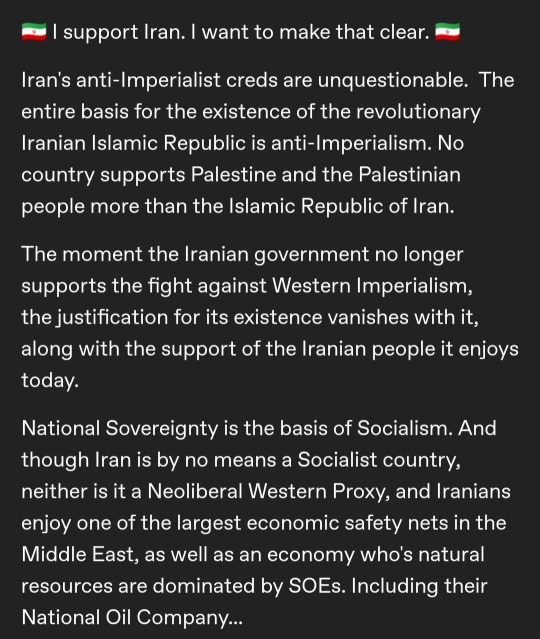
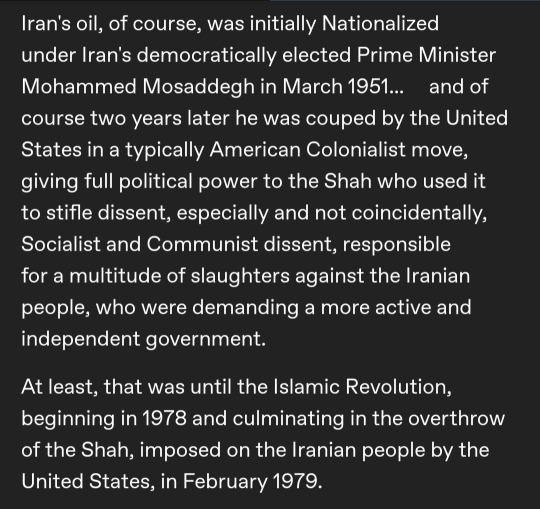
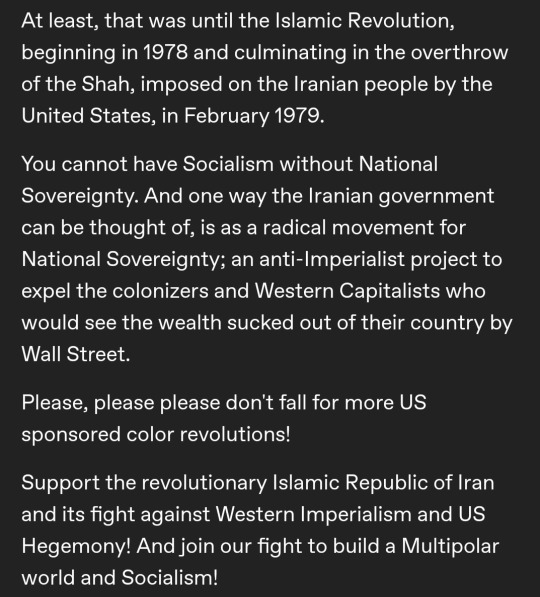
Some tankie bs detection
I saw this post on my dash. The user is blocked now. But just to educate people so that they won't fall for idiotic claims online, here are a couple of facts:
1. The Islamic Republic is not anti imperialist, they're anti USA. The regime is very much in love with Russian imperialism. At this point, Iran is an unofficial russian colony. And by the support of their imperialist father figure they have their small version of imperialism in middle east. Ask Iraq and Lebanon.
2. There's no "safety" when it comes to economy in Iran. The "national sovereignty" is called "those fvckin thieves in power" here. Iran's regime is one of the most corrupt regimes by international index. Rent, nepotism, embezzlement and money laundering are serious issues in Iran. Done only and only by the governors and people in power. Social class is not only a thing, there's a raging gap between rich people and those in poverty. And the gap is getting bigger and bigger by month. If you have connections in government or you are in the government, you'll get richer and richer. Other wise, soon enough you'll be in poverty too. Many families, including mine, who used to be considered middle class, have incomes lower than the poverty threshold now.
About 15% of Iran's economic failure including inflation is on the sanctions. The rest is on the corruption within the regime.
Iran's banking system is also a corrupted organ. The so called Islamic banking is anything but Islamic. The loan interest rate is one of the highest worldwide, 23%, so that often you have to pay back more than twice the money you've received. It's called Riba in Islam and it's Haram. According to the regime themselves, the banking system in European countries, even in the USA, is more Islamic than us. The fact that some of the biggest embezzlement in Iran has been done by bank managers should give you a picture of how they're drinking our blood.
None of this is on USA imperialism. It's all the Islamic Republic.
3. The Islamic Republic doesn't support Palestinians. The regime is extremely racist and anti Arab. I dare you talk about this with an actual Arab. IR don't give two shites about Palestinians lives. The regime is antisemitic. That's what they are. Palestine is just an excuse to attack Israel. In the past 20+ years of my life, living in Iran and dealing with these posers, not once we've been educated about Palestine and Palestinians lives. Everything I know, I've learned from online resources and documentaries make by Palestinians. The regime doesn't talk about Palestinians when they pose as supporters. I'm pretty sure they don't know or care to know anything noteworthy about Palestine, considering my knowledge of the human rights violations there is always more than basiji people of my country, and I don't even know that much. All the regime talks about is how Israel should be eliminated. IR supports a terrorist organization called Hamas, not Palestinians.
4. Let's forget about everything I said so far. I wonder if tankies like the op has any ounce of humanity in them! The regime has been oppressing women, violating every type of human rights and murdering lgbtq people and other-thinkers for the last 40 years. The spectacular environmental disaster in Iran is the direct result of regime's policies and neglect. This is a case of human rights violation since it's ruining people's lives, especially ethnic minorities, like Arab farmers in south.
No religious minority is safe in Iran, be it atheist, Baha'i, Jew, christian, or Sunni Muslim. They commit crime against children, through labor and through war. IRGC have little regards for human lives in general but it descent into no regards at all for ethnic minorities.
They have MASS EXECUTED 30,000 leftists (members of Marxist Communist parties and their supporters) within the first decade of their autocratic rule. It's unbelievably funny to me when foreign leftists support a regime that has executed many of their fellow thinkers and still arrest and torture any left activist in Iran.
To say the reason the 1979 revolution happened was to get rid of western influence and to establish a democratic free independent government is true. But the Islamic Republic is not that result. Don't be fooled.
#iran#iranian#iran revolution#iran protests#human rights#politics#lgbtq+#feminism#middle east#irgcterrorists#support iranian women#human rights violation#crimes against children#crimes against women#ethnic minorities#racism#russian imperialism#tw misogyny#tw racism#tw homophobia#environmental issues#background information
349 notes
·
View notes
Text
BG3 headcanons (modern AU)
My brain is full of headcanons and I need to get them out!
Shadowheart: She’s an English teacher. Always advocates for her queer students, who see her as a refuge. Loves sweets and pastries and is always carrying a snack in her backpack. Dyes her hair once a month, different colour every time. Chronically online, Tumblr and Twitter user, has the best taste in memes out of all the gang. Writes poetry and fan fiction. Grew up in a cult and lives with religious trauma, but she goes to therapy and does her very best.
Astarion: He’s a lawyer, of course. Has an impeccable aesthetic in his instagram profile, with a defined palette. Very good taste in clothing. He was physically and emotionally abused by his stepfather when he was a kid and hasn’t really worked through this trauma (Shadowheart always encourages him to go to therapy). Very close friends with Shadowheart.
Minthara: Lawyer, but has specialised in finance and has rapidly climbed the financial ladder via questionable methods. CEO of a major company. Impeccable taste in fashion. Vegan. Has a section in her closet filled with BDSM paraphernalia. Everything she owns is expensive. She’s the daughter of a powerful senator who was very emotionally abusive to her growing up. Staunch defender of capitalism. Wakes up naturally at 5 am. Does yoga and tai chi.
Lae’zel: She’s in the air force, has wanted to be since she was a girl. She’s in the spectrum and has only recently realised. Her special interests are planes and meteorology. Wakes up very early to run 10k. Extremely mindful about her eating, every meal is perfectly balanced for her specific nutritional needs.
Karlach: Non-binary. P.E teacher, works at the same school as Shadowheart and that’s how they met and started dating. Loves large dogs. They are a personal trainer on the side. Loves going to the gym and is very supportive of new people. Friends with Wyll since high school.
Jaheira: Anthropologist, environmental and anti-gentrification activist. Has lived in her neighbourhood forever and hates that it’s getting gentrified. Being a local icon and leader, a few political parties have tried to get her to run for office but she always refuses because she doesn’t trust the establishment. Has been arrested multiple times at demonstrations. She’s so devoted to her activism that she has neglected her children at times. Chain smoker.
Halsin: Environmental lawyer. Has worked in multiple NGOs. Has been to therapy. Single, not for a lack of suitors, but because he wants to find a life partner. Has been a vegetarian for decades. Has a bear tattoo.
Wyll: Entrepreneur. Devoted to The Grind™. Has taken classes on gender politics. Goes to the gym with Karlach and uploads mirror selfies. Has asked Minthara to be his mentor but she keeps refusing. Has also been to therapy.
Gale: Successful academic. Has been going through a terrible divorce with another famous and powerful academic. Excellent cook, makes his own sourdough bread. Likes the finer things in life.
Bonus: My OC, Ramona
Literature major but has no academic ambition whatsoever. She does know a lot about it and runs a literature club for troubled teenagers with Shadowheart.
Was working as a barista when she met Minthara and was immediately enthralled.
Has shared a flat with Shadowheart since uni, and they’re best friends.
She’s easily the funniest one in the gang.
Always manages to get free stuff or discounts just because of how nice and persuasive she is.
Excellent liar (white lies, mostly).
Wears recycled clothing almost exclusively, which Minthara hates.
Everyone hated Minthara when they first started dating but over time, as she changed, they managed to put up with her, even growing fond of her (most of them).
I’ve been trying to write some fics but I can’t seem to find the courage to. I enjoy coming up with headcanons more
#bg3#baldur's gate 3#shadowheart#astarion#minthara#lae'zel#jaheira#halsin#gale dekarios#wyll ravengard#bg3 tav
37 notes
·
View notes
Text
Dave Jamieson and Alexander C. Kaufman at HuffPost:
Failed presidential candidate Gov. Ron DeSantis (R) signed a bill late last week barring Florida localities from requiring employers to provide outdoor workers with access to water, rest and shade, outraging workplace safety advocates who say the new law will kill people.
Backed by the agricultural and construction industries, the controversial legislation is what’s known as a “preemption” law: It forbids cities and counties from pursuing their own ordinances on a particular subject, in this case protections from extreme heat.
The law effectively nullifies a proposal in Miami-Dade County that would require some employers to maintain a heat safety program and provide employees with water and shade on hot days. The county commission recently withdrew the proposal after the state legislation put its legality in doubt.
The preemption bill recently passed the Republican-controlled state House and Senate, along with a similar measure that prevents jurisdictions from requiring employers to pay livable wages on government-funded projects.
Unions and other progressive groups said blocking heat regulations would endanger farm and construction workers and anyone else who labors in one of the hottest states in the country.
“Someone is going to die as a result of this legislation,” Kim Smith, a telecommunications technician, told HuffPost last month.
[...]
Last year, Texas Republicans passed a similar preemption bill that blocked localities from implementing heat protections as well as other ordinances related to housing and labor. The legislation, known as Texas’ “death star bill,” appeared designed to thwart local laws in Austin and Dallas that guaranteed water breaks for workers.
Florida Republicans pushing for the preemption law said they wanted to avoid a “patchwork” of local regulations around the state related to heat safety, arguing the matter was better left to the federal Occupational Safety and Health Administration.
But OSHA does not yet have a heat-specific safety rule, and proposals to create a uniform, statewide standard in Florida have gone nowhere over the years because of a lack of Republican support.
More than 430 workers have died due to environmental heat exposure since 2011, according to OSHA. But relatively few jurisdictions have laws in place that require employers to provide water, shade and heat safety training. Just three — California, Oregon and Washington — mandate heat breaks for outdoor workers. Minnesota has heat standards for indoor workers, while Colorado does for farmworkers.
Just another terrible anti-workplace safety law signed in by Gov. Ron DeSantis (R-FL).
#Florida#Extreme Weather#Workers' Rights#Ron DeSantis#Workplace Safety#Florida HB433#Florida SB1492#Heat Safety
26 notes
·
View notes
Text
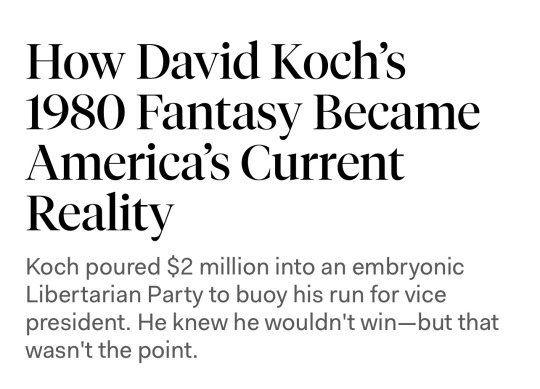
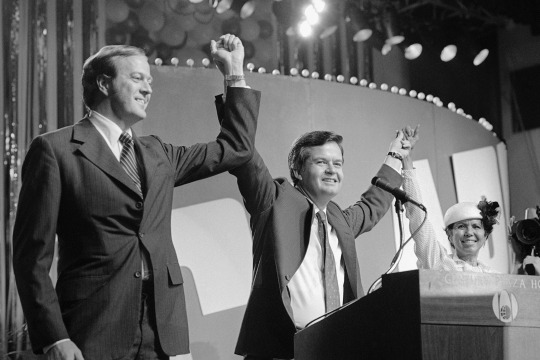
Billionaire fossil fuel mogul David Koch died August 23, 2019. Though he will rightfully be remembered for his role in the destruction of the earth, David Koch’s influence went far beyond climate denial. Ronald Reagan may have uttered the famous words, “Government is not the solution to our problem, government is the problem” back in 1981—but it was David Koch, along with his elder brother Charles and a cabal of other ultrarich individuals, who truly reframed the popular view of government. Once a democratic tool used to shape the country’s future, government became seen as something intrusive and inefficient—indeed, something to be feared.
“While Charles was the mastermind of the social reengineering of the America he envisioned,” said Lisa Graves, co-director of the corporate watchdog group Documented, “David was an enthusiastic lieutenant.”
David Koch was particularly instrumental in legitimizing anti-government ideology—one the GOP now holds as gospel. In 1980, the younger Koch ran as the vice-presidential nominee for the nascent Libertarian Party. And a newly unearthed document shows Koch personally donated more than $2 million to the party—an astounding amount for the time—to promote the Ed Clark–David Koch ticket.
“Few people realize that the anti-American government antecedent to the Tea Party was fomented in the late ’70s with money from Charles and David Koch,” Graves continued. “The Libertarian Party, fueled in part with David’s wealth, pushed hard on the idea that government was the problem and the free market was the solution to everything.”
In fact, according to Graves, “The Koch-funded Libertarian Party helped spur on Ronald Reagan’s anti-government, free-market-solves-all agenda as president.”
Even by contemporary standards, the 1980 Libertarian Party platform was extreme. It called for the abolition of a wide swath of federal agencies, including the Food and Drug Administration, the Department of Energy, the Environmental Protection Agency, the Nuclear Regulatory Commission, the Federal Aviation Administration, the Bureau of Land Management, the Federal Election Commission, the Bureau of Alcohol, Tobacco, and Firearms, the Federal Trade Commission, and “all government agencies concerned with transportation.” It railed against campaign finance and consumer protection laws, the Occupational Safety and Health Act, any regulations of the firearm industry (including tear gas), and government intervention in labor negotiations. And the platform demanded the repeal of all taxation, and sought amnesty for those convicted of tax “resistance.”
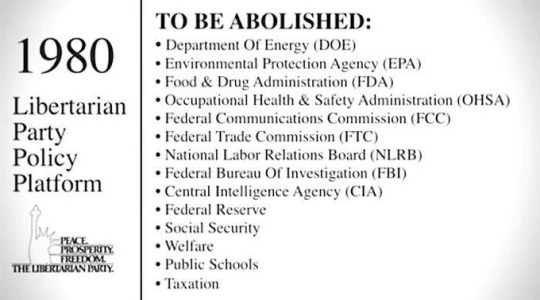
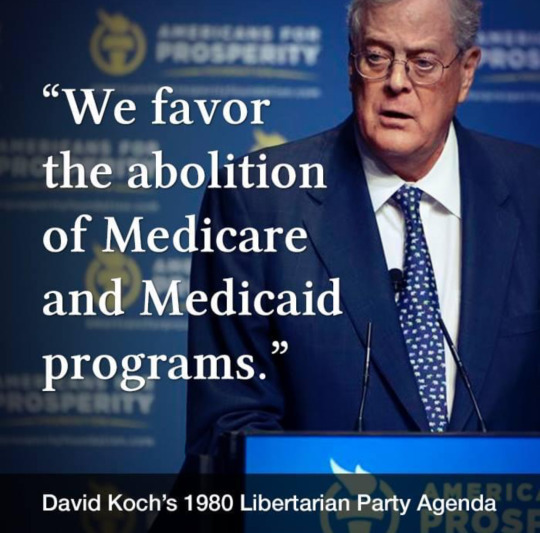
Koch and his libertarian allies moreover advocated for the repeal of Social Security, Medicare, Medicaid, and other social programs. They wanted to abolish federally mandated speed limits. They opposed occupational licensure, antitrust laws, labor laws protecting women and children, and “all controls on wages, prices, rents, profits, production, and interest rates.” And in true libertarian fashion, the platform urged the privatization of all schools (with an end to compulsory education laws), the railroad system, public roads and the national highway system, inland waterways, water distribution systems, public lands, and dam sites.
The Libertarian Party never made much of a splash in the election—though it did garner almost 12 percent of the vote in Alaska—but doing so was never the point. Rather, the Kochs were engaged in a long-term effort to normalize the aforementioned ideas and mainstream them into American politics.
(continue reading)
#politics#republicans#libertarians#koch brothers#koch bros#libertarianism#conservatism#ronald reagan#reaganism#charles koch#david koch#libertarian party
57 notes
·
View notes
Text
Yes, it's true that many concepts and ideas found within New Age beliefs aren't "new." Many of them can be traced back hundreds, sometimes even thousands of years. The thing that makes New Age so insidious is what it does with them. Also? It just has a lot of shitty beliefs and attitudes packed into it, in general.
New Age rips numerous people's spiritual beliefs out of context and tries to shoehorn them into a culturally Christian apocalyptic framework. New Age acts like it knows other people's own spiritual traditions better than they do.
New Age promotes cultural colonialism and genocide by positing that people cannot advance and grow spiritually, or at the very least cannot "ascend to 5D," without adopting its beliefs and practices.
New Age promotes anti-environmentalism by telling people that climate change is just part of the Earth's "shift to 5D." This no different from fundamentalist Christians saying that climate change is just God's punishment/a sign of the End Times.
New Age discourages genuine scholarship and promotes conspiracy theories because genuine archaeological evidence, real ancient texts, etc. etc. constantly contradict their beliefs. This is because New Age is extremely literalist - Atlantis can't just be a metaphor to them; it must have really existed.
New Age moralizes poverty, illness, and disability by blaming these things on having "a low vibrational frequency." This is no different from fundamentalist Christians telling people that bad things happen to them because they've made God angry.
This post is not an exhaustive list of each and every issue with New Age. This is just a teeny tiny sampling of everything wrong with this movement. The tippy tippy top of the iceberg. If you want to learn more about what's wrong with it, I suggest you start researching the New Age to Alt Right pipeline.
And if you think far right ideology is anything new in New Age?
You haven't dug deep enough.
#new age#new agers#spirituality#conspirituality#conspiracism#witchblr#mysticism#occult#occultism#esoteric#esotericism#new age to alt right pipeline#colonialism#genocide
287 notes
·
View notes
Note
FYI: the author of that ""they deserve to die" is something you should never hear a leftist say. if you do, run" post is a Zionist. I guess that mindset doesn't apply to brown people, huh?
But also, you should consider that this is an extremely shallow view of leftism and violence as a tactic. What, you're a "punk" and you think any punk space got safe without a few nazis getting their teeth kicked in? They didn't. Sorry.
I hope you develop a punk mindset that's a little less about shitty bands and an aesthetic and a little more about having firmer political opinions and not agreeing with Zionists.
Your concern in the first paragraph was addressed in a previous post I’ll link to here.
Going off of that, I’m not sure what on my blog, besides the controversy surrounding this specific post (which again has already been addressed), would ever make you think that I would exclude anyone from the statement of ‘we shouldn't say anyone deserves to die’??? I simply. Do not think humans should be killing other humans. At all. Anywhere. On either side of any war. Like. One human should not be granted the power to decide the lifespan of another in my opinion
On that note, being anti-war is actually both a very punk stance AND a left-wing movement. Though I agree, it is a shallow view of leftism. Because leftism is SO much more than a single movement (like the civil rights movement, the feminist movement, the LGBTQ+ movement, the environmentalism movement, anarchy, socialism, the labor movement, and GOD the list goes on). But also. It *does* include being anti-war and anti-'they deserve to die'.
As far as Punk being anti-war and taking non-violent approaches to the larger socio-political changes in the world, I'd recommend looking into Peace Punk. It was very popular in the 70's and early 80's with bands like Subhumans, Zounds, and The Mob. Here's a great beginner article on it!
As to your point about nazis. I promise you I'm not oblivious to the history behind the phrase 'Nazi Punks Fuck Off'. I also would have hoped that someone would be able to see nuance in a statement that say 'lets not say everyone deserves death' and not read it as 'we should let nazis do what they want'. Because that would be stupid. And if you've interacted with my blog for any real length of time, then you would know that I ALWAYS support punching nazis. But evidently that must have slipped your brain.
Now as far as this part of your ask: "I hope you develop a punk mindset that's a little less about shitty bands and an aesthetic and a little more about having firmer political opinions"
First of all buddy, I think I've already demonstrated that my political opinions are pretty firmly set (and that someone hoping on anon isn't going to change them). Personally, I don't feel the need to scream about my political stances every second of the day to make myself feel validated and like a good person. Because I have a life outside of the internet. But you do you I guess. I would however say that its kinda a dick move to just assume that others aren't well educated or have developed opinions when you've evidently only looked at a single post on my blog without actually looking at my blog. Otherwise you would have seen the EXTENSIVE amount of research and punk culture that I've written about or collected either on my own or in collaboration with others.
Really its either that you just didn't look, or because you didn't immediately agree with me, that you decided that my political views had a very shaky foundation. In which case, please do grow the fuck up and learn how to deal with people that have differing opinions than you without being a bitch and ranting about it on anon thanks.
Also. I like my 'shitty bands'. Get over it (Also like. Punk is inherently connected to music and shitty bands? Do you not know that? Do you understand where punk even comes from? I'm all for not needing to listen to punk music to be a punk as long as you align with other facets of the counter culture, but being told NOT to focus on music that is politically charged and full of punk values and history. Well that's a new one lol)
And lastly. Dude if you don't like me, you don't have to be here? You can leave? No one is forcing you to read anything on my blog??? Bye???
22 notes
·
View notes
Text

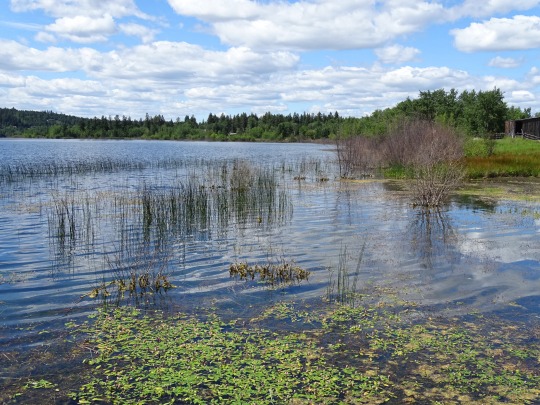
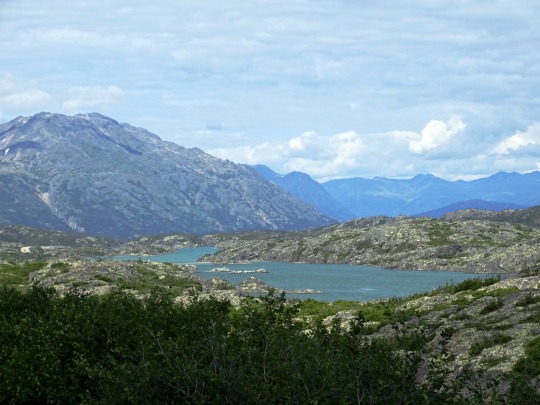
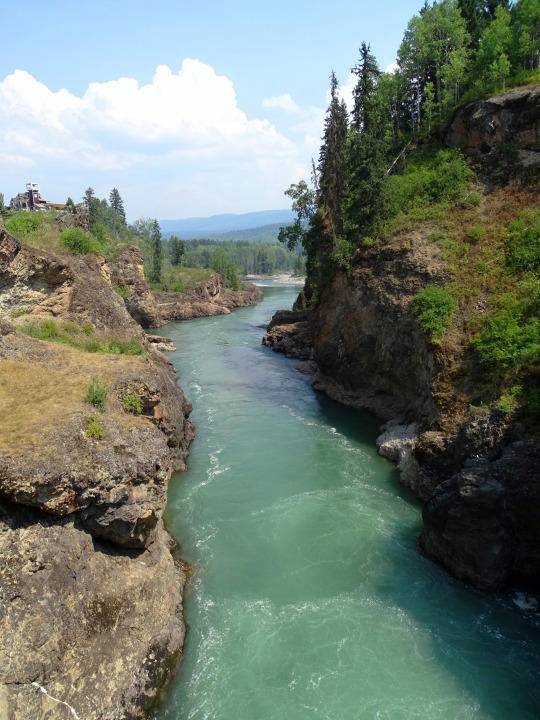

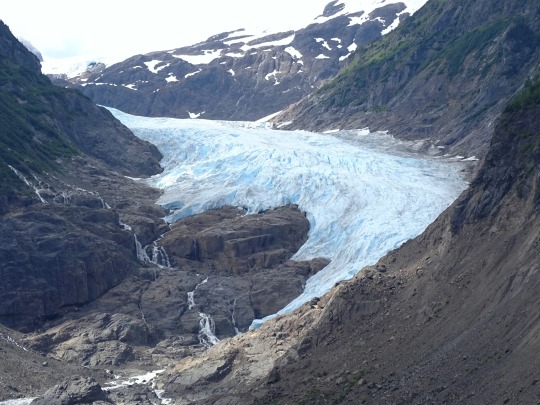

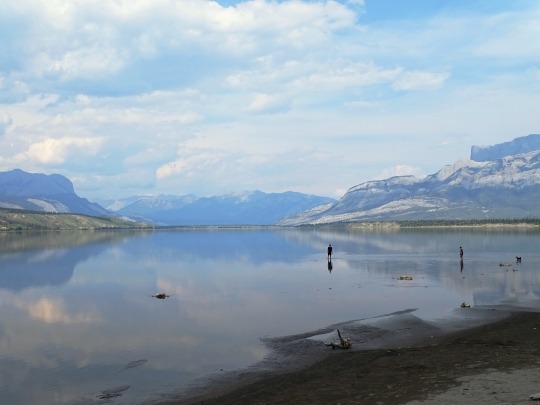
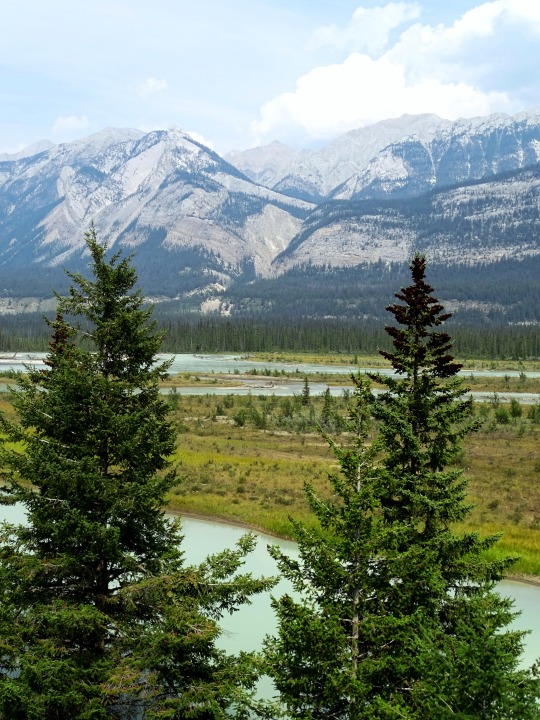

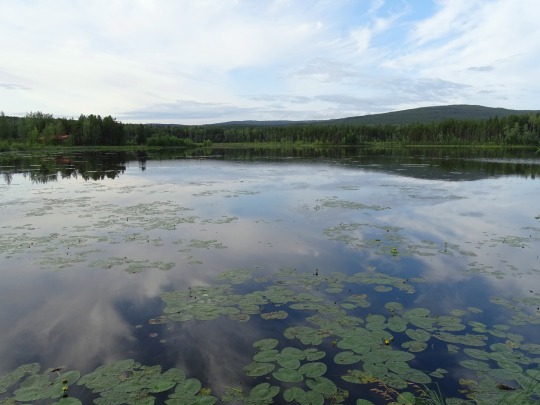
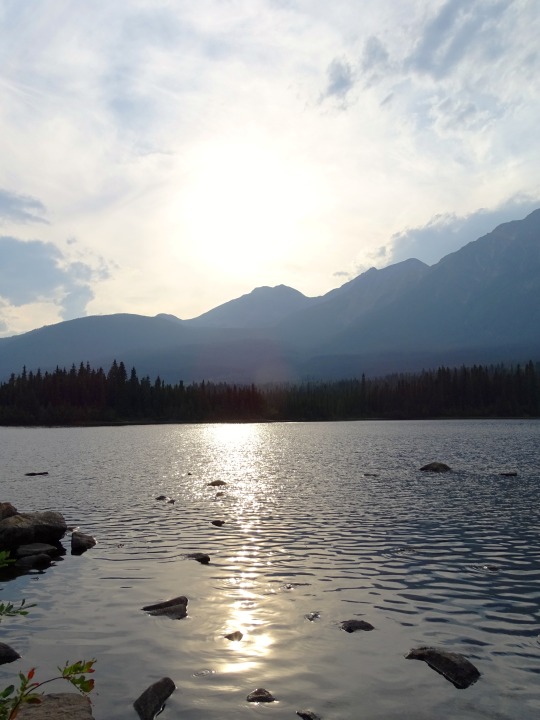



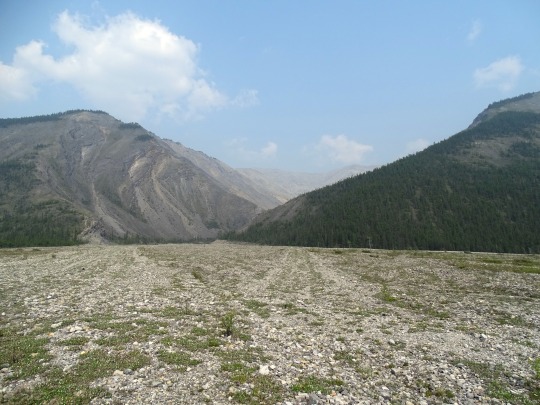

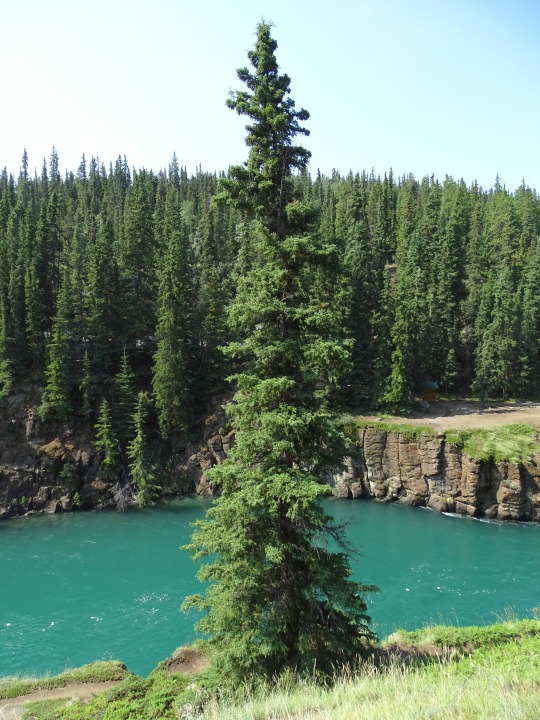
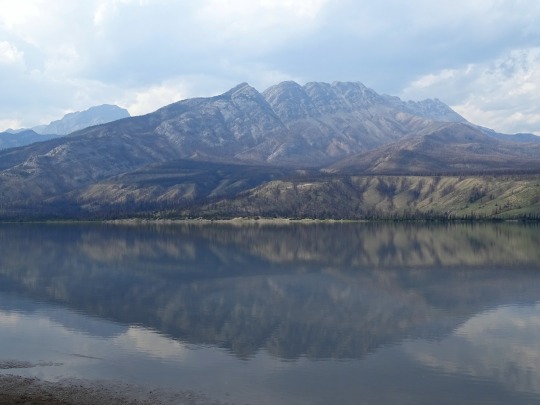



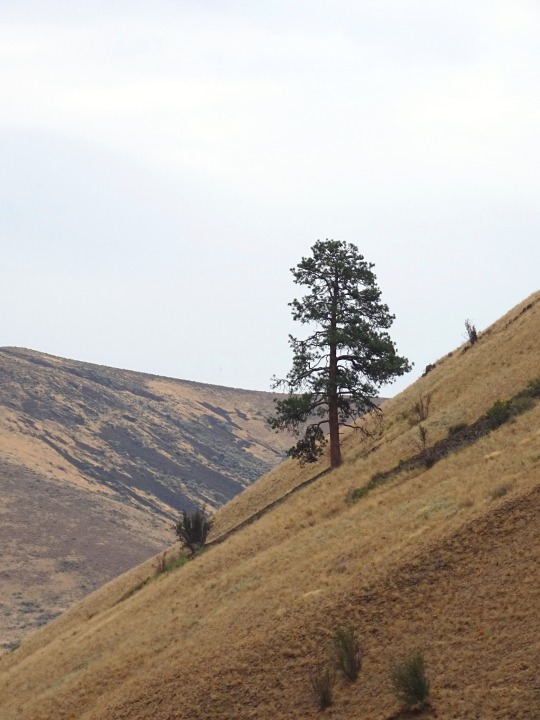
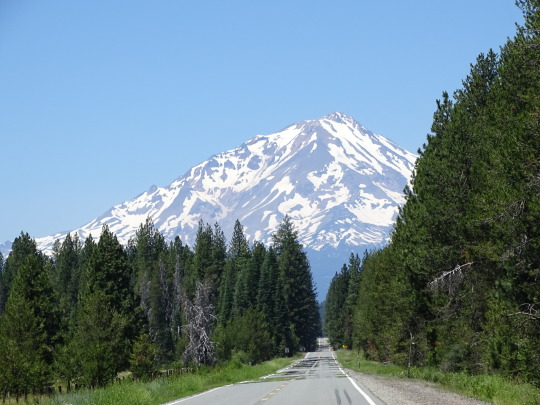
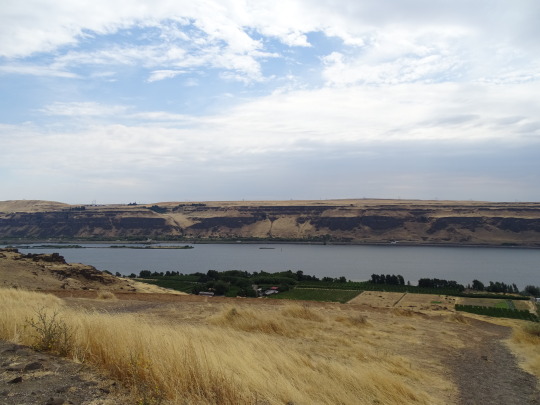
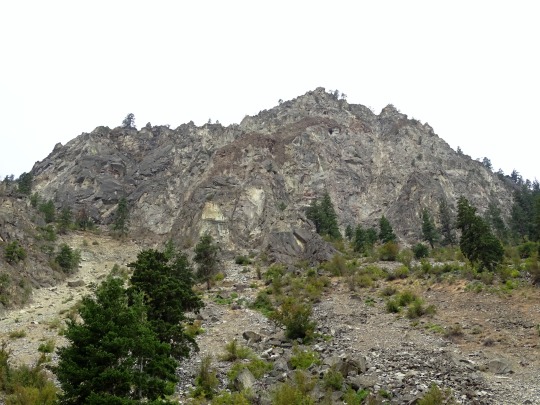




Earth Day
As threats to the Earth grow, so too do the global initiatives that seek to preserve it, whether through volunteer work, donations, or political lobbying.
Earth, due to human activity, is in trouble. The ozone layer is depleting, ecosystems are being lost and people are starving and dying of dehydration. Endangered species are disappearing rapidly, our water and air is becoming increasingly polluted, and weather systems are being pushed to the extreme.
A scary picture indeed, but thankfully one we can all do something about! Earth Day, one of the first global initiatives to protect and conserve the earth, has become an annual event that strives for positive change on a global scale. It aims to inspire individuals, communities, businesses and governments all over the world to take action and help preserve the planet.
History of Earth Day
As the world’s largest environmental movement and the most widely celebrated secular occasion, with over 1 billion people and more than 75,000 partners involved each year across almost 200 countries, Earth Day has gone from strength to strength over the course of its history.
Founder Gaylord Nelson, a former US senator, thought of the idea after witnessing the 1969 oil spill in Santa Barbara, California. Inspired by the vigor of the student anti-war movement, he believed it was essential that energy was shifted to concerns about air and water pollution.
Originally envisioned as a campus teach-in event, Senator Nelson enlisted youth activist Denis Hayes to help organize the first Earth Day in 1970, and the pair opted for 22 April due to where it fell in the academic year, ensuring that the maximum number of students would be able to take part.
Nelson, Hayes and their team were able to spread the message far and wide, including to the national media, and promote events across the US. The occasion was a massive success, with 20 million Americans taking to the streets to celebrate the first Earth Day. They demonstrated in support of the cause, and groups that had previously been rallying around environmental issues separately came together on the day due to their shared values.
The first Earth Day helped put environmental protection on the political agenda and bring about change. That same year the United States Environmental Protection Agency was set up, and soon after various legislation was passed, including the Clean Air, Clean Water and Endangered Species Acts.
It wasn’t until 1990 that Earth Day went global, spreading the message to 200 million people in over 140 countries. By the millennium it had reached more than 180 countries and involved hundreds of millions of participants worldwide. And of course the year 2020 marked the 50th anniversary of Earth Day.
2016’s Earth Day was a particularly special year, as it heralded the United Nations’ adoption of the Paris Agreement. Signed by 175 countries, this international treaty established legally binding targets for tackling the climate emergency, ensuring that as many nations as possible are working together to cut emissions and prevent global warming.
As a day of action, Earth Day aims to promote environmentalism through engagement, activism, education, policy changes and peaceful protest. It has focused on various themes over the years, such as climate change, trees, clean water and a healthy environment for children, and multiple organizations and venues host events that showcase the importance of caring for the environment.
This vital day teaches people about the consequences of their behavior on the places and ecosystems in which they live. And it’s not just about the damaging effects on the environment itself, but also about the impact on people’s health, access to food and water, safety and livelihoods. To get involved, people choose to make conscientious changes such as recycling more, using renewable fuel and conserving water.
Earth Day Timeline
1962
Rachel Carlson releases book Silent Spring
Raising public awareness for the plight of living organisms, Silent Spring makes its way up the New York Times bestseller list and sells more than ½ million copies in at least 24 countries.
1970
First Earth Day is celebrated
After witnessing a massive oil spill in California, Senator Gaylord Nelson from Wisconsin announces the idea of a teach-in on college campuses, choosing April 22 to fall between spring break and final exams to gain as much participation as possible. This bi-partisan event engaged 20 million Americans in working to protect the planet.
1990
Earth Day takes on the globe
Taking Earth Day around the world, just 20 years after the original event the participation increased ten-fold to include 200 million people from at least 140 countries.
1992
United Nations Earth Summit takes place
The United Nations Conference on Environment and Development (UNCED) meets in Rio de Janeiro to address issues of sustainability and provide opportunities for collaboration around the topic.
2000
Earth Day reaches record numbers
In celebration of the new millennium and the 30th anniversary of the observance, Earth Day includes 5000 environmental groups from 184 countries with activities all over the world.
How to celebrate Earth Day
There are a whole host of activities you can get involved in to mark this important occasion, not only around the globe but even in space! The Earth Day website allows people all over the world to find and share events designed to celebrate the day, from presentations and film screenings to cleanups and conservation efforts. This means that Earth Day enthusiasts can join things local to them or on the other side of the planet! And NASA often hosts an event from the International Space Station, for example livestreaming the image of our beautiful earth for all to see.
Another great way to celebrate Earth Day is by learning about what your actions do to the environment and why maintaining the earth’s ecosystems is vital to our survival. There’s a myriad of online resources – articles, quizzes, documentaries and so much more – to help us all find out more about our precious planet and the role we can play in protecting it.
If you feel able, why not donate money via Earth Day’s official website or to another environmental charity such as Greenpeace, the Rainforest Alliance or the Union of Concerned Scientists? Your support will help with a whole range of campaigns and projects, including pushing governments and businesses towards more environmentally friendly policies, preventing damaging practices such as deforestation and mining for fossil fuels and protecting those communities most vulnerable to the effects of climate change. You could also volunteer for local environmental groups and really make a difference where you live.
Above all, this occasion shouldn’t just be about one day, but rather a regular habit! Even the simplest of changes to our lifestyle can make a real difference. Switch to using an eco-friendly search engine, buy fruit and veg from the shop that isn’t wrapped in plastic, and put on an extra jumper rather than turning on the heating.
If you’re serious about the planet, then there’s plenty more you can do to live in a greener, more sustainable way, including powering your home with renewable energy, cycling and walking more and driving less (or buying an electric vehicle), reducing your meat and seafood consumption, recycling your waste, planting wildflowers in your garden for the bees and butterflies, and ensuring that your financial investments, for example, your pension fund, are contributing to green jobs and a green economy. Be sure to spread the word about National Earth Day through social media and let your friends and family know why protecting the earth is essential to you.
Earth Day FAQs
Is Earth Day international?
Yes! Although it is called Earth Day and it began in the US, the day is now celebrated and observed in a majority of the countries throughout the world–at least 193 countries.
How is Earth Day celebrated?
Individuals, groups, organizations and communities can all celebrate Earth Day by raising awareness, participating in sustainability projects, volunteering, making donations and so much more.
Is Earth Day always on April 22?
Yes! Ever since its inception in 1970, Earth Day has been celebrated annually on April 22. The original idea to reach college students made this the perfect time between spring break and finals.
Who created Earth Day?
Although the stage was set at the 1969 UNESCO Conference in San Francisco, the execution of the day can be credited to US Senator Gaylord Nelson who proposed an environmentally focused day for college campuses. The idea grew from there.
Where did Earth Day start?
The first ideas for Earth Day were formulated in the United States and meant to be observed as “teach-ins” on college campuses, but the idea quickly grew and it eventually turned into an international day including most of the countries on the planet.
Source
#travel#vacation#tourist attraction#landmark#InternationalMotherEarthDay#EarthDay#Earth Day#22 April#original photography#cityscape#landscape#countryside#Rocky Mountains#Alberta's Rockies#Northern Rockies#Canada#Alberta#Yukon#British Columbia#Oregon#Washington#California#USA#summer 2023#Jasper National Park#nature#flora
15 notes
·
View notes
Text
Conspiracy theories and the people creating them have overwhelmed the US political process, and they’re becoming only more prevalent with each passing year. 2024 will be no different, if not worse: We’re already uncovering all kinds here on the WIRED Politics desk, from election conspiracy groups to claims that Boeing planes were made faulty on purpose. In the past few days alone, we’ve seen theories swirl online about the Baltimore bridge collapse and Kate Middleton’s cancer announcement.
A number of conspiracies were also given a boost this week by Robert F. Kennedy Jr.’s long-shot presidential campaign. Let’s talk about them!
The Longest VP Announcement
On Tuesday, RFK Jr. officially announced his VP choice: Nicole Shanahan, a tech entrepreneur, lawyer, and very wealthy ex-wife of Google cofounder Sergey Brin. I checked in with WIRED contributor Anna Merlan to debrief what was probably the longest veep announcement in recent history, and to talk about the conspiracies, digital campaign strategies, and vaccine skeptics driving Kennedy’s campaign. I’ve been taking a hard look at how the campaign is reaching voters online, and Anna covered the announcement for WIRED. She’s also been reporting on RFK Jr. and the anti-vax conspiracy ecosystem for years.
This interview has been edited for length and clarity.
MK: Ok. Nicole Shanahan. When they played her introductory video at the RFK Jr. event, I wasn’t expecting her to come off so conspiratorial. Were you surprised by what she said at all?
AM: Obviously, Shanahan was widely reported to be the VP pick. I did not know her stance on medical conspiracy theories, but I figured there had to be something there because you probably wouldn't agree to appear on a ticket with RFK without that.
So in her introductory video, she said that her daughter started showing signs of autism spectrum disorder in her infancy, and then she segued into making a series of claims that are very legible to people in the anti-vaccine movement. She claimed that chronic illnesses and conditions like autism can be caused by environmental exposure, wireless technology, and medication. And then she added that science can't assess the cumulative effects of multiple childhood vaccines—which is not true. The childhood vaccine schedule is very, very, very studied. Vaccines are some of the safest, most tested medical products on earth. It's not true, but as a talking point, it is again incredibly recognizable to the anti-vaccine movement. So for me, hearing her saying that stuff solved a little bit of a mystery of why she's involved.
MK: There were a lot of other people on stage yesterday and I didn’t recognize all of them. Who were those people?
AM: This was obviously a very long event—I think you even tweeted that it was only slightly shorter than Dune 2, which is true. There was a parade of speakers: Some of the bigger ones were Del Bigtree, who is really well known among anti-vaccine activists and is currently serving as the Kennedy campaign’s communications director; Jay Bhattacharya, who is a very prominent anti-lockdown figure; a former border patrol agent; and a couple of people who are active, if not super well known, in the natural health space. Basically, these speakers were each meant to speak to a slightly different constituency, because RFK Jr.’s main focus for so long has been anti-vaccine activism.
MK: Let’s talk about Bigtree. I’m curious about the space he occupies in the online conspiracy world.
AM: Bigtree was definitely the biggest speaker who was on the stage. He’s a very well-known anti-vaccine activist and is the CEO of a group called Informed Consent Action Network that is funded by billionaire foreign donors. He was the producer of an extremely famous and successful vaccine movie called Vaxxed, with Andrew Wakefield, who is the father of the modern anti-vaccine movement. And he’s the person who first falsely claimed that there might be a link between vaccines and autism, and set off a huge panic. So, Bigtree is incredibly well known. He’s incredibly popular and his place on the Kennedy campaign, I would opine, is meant to signal to RFK Jr. supporters in the anti-vaccine community that it’s still going to be a concern for a theoretical Kennedy administration.
MK: It did feel like the campaign was trying to thread the needle between the left and the right.
AM: It’s an awkward fit, isn’t it? I mean, RFK Jr.’s campaign had a YouTube livestream where you could watch the announcement, and if you looked at the comments during the land acknowledgement for the Muwekma Ohlone Tribe, they were pretty, unsurprisingly, racist. This is not a reflection on his campaign necessarily, but it's a reflection on some people who might have been inclined to support him. The sort of tug between having a Bay Area tribe on stage to get the land acknowledgement and then having somebody come on stage to talk about his history as a border patrol agent is awkward. Is that actually going to work on a large number of undecided voters? I don't know, but clearly that was what it was meant to do.
MK: Earlier today, I saw an ad on Twitter promoting an RFK Jr. documentary. It feels like such an investment in highly produced storytelling for the campaign. And this announcement event being so highly produced, it read like the campaign is trying really hard to make all of this pseudoscience appear legitimate. What did you think?
AM: RFK Jr.’s campaign, as you wrote about, has been very aware of sort of appealing to online spaces. One of those ways that you do that are these highly produced, slick little videos that look good on social media. So I wasn’t surprised.
But I was surprised that the announcement event was so long. I was surprised that there wasn't a little bit of attention to what the attention span is for an internet audience. I would definitely expect to see things that are highly produced, that are sort of media savvy, and that are also completely focused on burnishing RFK’s individual reputation. Because ultimately, in a long-shot candidacy like this, which may or may not be a sincere run for the White House, candidates are seeking to burnish their reputations in the worlds that they come from, and to even grow their market or their audience and become better known to a consumer base that they might not be known by already. Marianne Williamson, for example, had huge success with that.
MK: Another reason I can imagine why it was so long is because they knew how many eyes were going to be on this, and that it was probably one of their last big announcements and attempts to convince people to vote for him.
AM: The last big announcement. It's the last big chance to raise money, really. And they need money to get on the ballot. You’re trying to appeal to everybody, and you’re trying to make the most of what is probably your last moment.
The Chatroom
Occam’s razor doesn’t really exist on the internet. Or with conspiracy theorists. That couldn’t have been more apparent after a cargo ship tragically crashed into the Francis Scott Key Bridge in Baltimore this week, resulting in the presumed deaths of six people. Instead of assuming that the collision was due to a systems failure on the cargo ship, online conspiracy theorists have taken to blaming everyone from Nickelodeon to the CIA to DEI initiatives, as reported by my colleague David Gilbert.
We still don’t know too much about how and why the Tuesday morning collision took place, but if one were to guess—it’s unlikely that wokeness is the primary culprit.
But hey, maybe you know better than me. Leave a comment or send me an email at [email protected] and let me know.
12 notes
·
View notes
Text
Thinking about Erin Hunnicutt … how she’s going to grow up to be the coolest person, how she only had one parent during the war and after the war she’ll be raised by two loving parents, plus honourary uncles (Hawkeye, Charles, Klinger, Radar) and aunts (Margaret, Soon Lee, Honoria, Peg’s lady friend if your headcanon leans that way), how she gets to be a teenager during Beatlemania, how she’ll definitely attend all kinds of anti-war and civil rights protests and marches, how she’ll go to college and be absolutely brilliant in whatever field she chooses (maybe medicine like her dad, maybe political science, or environmental law), how she’ll have the courage and conviction to do what’s right no matter how hard it is because she’s been surrounded by good and loving people who have taught her to care about others … Erin Hunnicutt!!!
(this post inspired by the several extremely good Erin-centric Beejhawk fics that are being posted right now 💓)
109 notes
·
View notes
Note
(Very genuine question) how do you handle breaking down the “chemical imbalance that needs to be treated” framework when so many people cling to that framework to reassure themselves that it isn’t their fault. I have been reading on psychiatry and I would like to feel more comfortable bringing it up and pushing back when I hear harmful rhetoric but worry about doing more harm than good due to my in-eloquence and explaining things badly
great question and honestly, this is something i want to improve on in my own communication. it's part of a wider and very pernicious lie that functions to defend both medical practitioners' professional positions and the capitalist status quo by re-locating all suffering to the realm of the individual pathology and presenting pathologisation and medicalisation as not only liberating, but the only possible path to validation & care. there's no room here for a contextualisation of suffering or a critique of the social conditions that bring it about; it's also a lie that fails patients over and over again because, for the many who don't respond adequately to whatever the approved biomedical treatment is, the pathologise-and-treat model can only respond that they must be doing something wrong. with the 'chemical imbalance' conception of depression, for example, so many patients who then don't feel better on SSRIs come to believe their brains must be uniquely 'broken' and that they are simply neurologically doomed to feel like this forever. this is, for the psychiatrist and the state, preferable to having depressed people who are accustomed to viewing their suffering as in any way social, environmental, or collective!
anyway, like i said this is something i also want to work on so i don't know that i have a cheat code here. i try to emphasise throughout any discussions on such a topic that i'm offering a third way forward: not "this is biological so it's not your fault" but also not "this isn't biological so you can fix it". it's a completely different paradigm for understanding suffering. i also think, where drugs like SSRIs are concerned, it can be helpful to point to studies (particularly meta-analyses) on their relative ineffectiveness, and to emphasise that you're not contradicting any individual experiences this person may or may not be describing with these drugs; the point is a wider one. i think it's understandable that many people encountering any kind of anti-psych critique will at first be extremely wary about the idea that moving away from bio-psychiatry means blaming people for their own 'illnesses' and i try to come at these conversations with a lot of patience to re-iterate that moral culpability is not an inevitable part of a non-disease understanding of mental suffering. it can also help a lot to connect this to wider disability politics, and to point out that pathologisation and medicalisation in general are not some kind of shortcut to avoid stigma and moral judgment; in fact, often the opposite.
251 notes
·
View notes
Note
What are your thoughts on the Al ghuls?
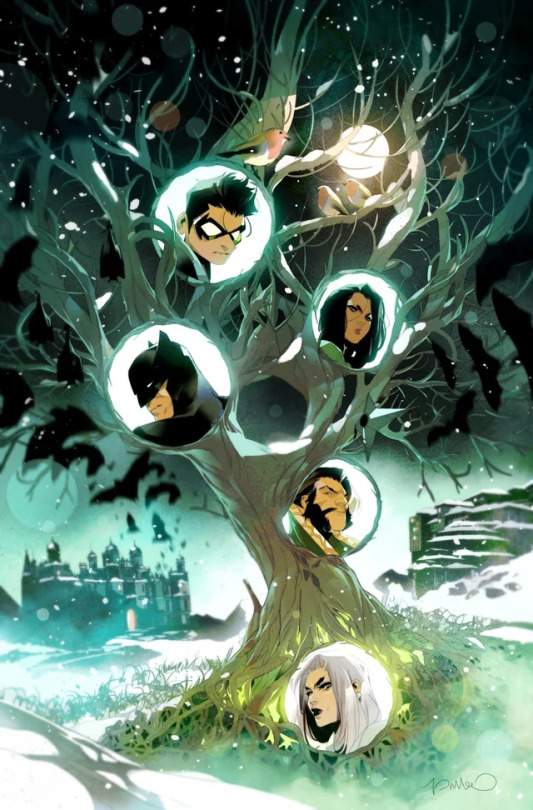
My second favorite dysfunctional family (behind Slade Wilson, his ex-wife, his butler, his children and Terra which I collectively call the DeathFam). The Al Ghuls specifically Ra's Al Ghul and Talia are my favorite batman villains, sometimes anti-villain, and in Talia's case sometimes Anti-Hero (My Girl's got range.) Since you asked my thoughts I will try to give them as organized as possible but warning there are a lot.
1. On The League in General
The League, the Lazarus Pits, and the mythology surrounding them is one of the coolest parts of DC Lore in general. In my opinion the best portrayals of the league are when they are one hundred percent genuine about their ideals. One joke I like to make is that Poison Ivy and Ra's are both environmentalists, but unlike Poison Ivy R'as actually has a plan and resources. Ra's love for the world and his desire to save it is at the core of his character, and the reason he will not let himself die, or let go in any real way because his work is not done.
One aspect I do not like about the league is that they are supposed to be antagonists, but I wish Ra's plan was more developed than "kill a whole bunch of people so the resources can be split amongst the survivors." That's such a disagreeable plan Ra's point to make about how the whole planet is dying and nothing superheroes do is really fixing that problem is kind of lost. It's also as dumb as movie Thanos idea to snap and destroy half the life in the universe. If I were to tweak it, I would make Ra's agenda more in line of a communist revolution. That is get rid of the capitalistic systems that drive the destruction of earth's natural resources for endless production and profit. That change would make some of the leagues motivations and methods much more sympathetic.
The league would still be villains however, because even if in this tweaked versions their methods are understandable they're still a big huge cult. Which is an aspect that a lot of fans and sometimes comic writers seem to miss. In the microcosm (Ra's personal family) and the macrocosm (the whole league) the league is a cult centered entirely around Ra's ego, his ideals, his wishes. Even if you can sympathize with their ideas of revolution and go "Hey, that might work" the League is still going about it the wrong way because they constantly prey upon vulnerable minors and people on the edge of society and then raise them up into loyal pledges to a cause. A lot of real life fringe groups do this too. In this version the league recruits members because it's easier this way, which is in line with Ra's character. The whole conflict with Ra's is that he just will not let go of control, he talks about how he wants an heir to take over everything but that's never going to happen because he won't even let himself die. You could fix this too, take the league out of Ra's hands, reform it, and it could be a more genuine force for good. So yeah, my take is less the league isn't good because they assassinate politicians and have more revolutionary ideals, but rather the league is bad because they regularly groom minors.
2. Ra’s Al Ghul

Here is a comic panel of Daphne from Scooby Doo sword fighting Ra’s Al Ghul, mostly because I love it.
Ra’s is THE Batman villain for me. If the Joker represents Batman’s completely anti-thesis, then Ra’s is Bruce, all of his ideals, his nobility, taken to their most logical extreme. He’s the definition of the noble demon. If you want to ready story arcs that I think show off Ra’s at his best, there’s the “Tower of God” storyline where Ra’s finds all of Batman’s measures against the Justice League he prepared in case any of them turned evil and then decides to use them himself. Then there is “Injustice 2″ which is one of the better depictions of Ra’s where he is at his most genuine to his goal of environmentalism and even at points sits down at the table to talk with the superheroes in a more peaceful manor on how they could be doing better.
If the Tower of God storyline did not explain it to you, Ra’s reflects Bruce in good aspects and bad ones. The same relentless dedication that Bruce has to saving Gotham, Ra’s applies to the whole world. Ra’s also like other batman villains shows how a generally positive trait like Bruce’s insane levels of dedication can easily turn into a flaw. Bruce has no powers just his martial arts training, but just will not give up under any circumstances. Ra’s determination gets him into a horrible cycle of corrupting himself worse and worse over the years both due to overuse of the pits and also frustration at a world that refuses to change, and also shows in his inability to surrender power in any real way.
The way Ra’s treats his direct family, and the league as a whole is also a dark mirror to Batman and the Bat Family. Now, I don’t believe that Bruce is raising up hero sidekicks as child soldiers... Suspension of disbelief people! However, Ra’s genuinely does treat all of his children as tools for his agenda. As much as he has the capacity to love them, their needs and desires will always come second to his use for them. Ra’s is undeniably a groomer not in the sexual sense but in the sense he is using his position of power raising up and manipulating these minors to shape them into what he wants them to be.
Ra’s also represents Bruce’s paranoia and the times where he abuses his position as patriarch of a family to manipulate his kids lives. Ra’s is undeniably the one who holds the most power in the Al Ghul family, and he uses that imbalance in power entirely to his own ends. What he creates is a cycle of generational abuse that lasts all the way until Damian. Ra’s also represents Bruce’s sometimes toxic ideas of masculinity turned up to 11. My man is a 400 year old misogynist. He is obsessed with ideas like divine birthright, dynasty, legacy as shown by the way he once again treats his children. His oldest son is disqualified for being albino and therefore having a defect, Nyssa and Talia are disqualified for being born women. The fact that Bruce represents his ideal heir and he is a man with money and power the peak of what society considers is masculinity is you know, telling of his opinions towards gender. Bruce and Ra’s are both carriers of family legacies, who devote all of their money and power to their genuinely good goals, but Ra’s seems to believe that might makes right, the money, resources and bloodline he has makes him inherently better or even chosen. Which cycles into the reason why he will never let go of said power.
3. Talia Al Ghul
Talia is my favorite member of the family, she is also hardest to talk about because she suffers from two things number one being wildly different depending on the writer, and two orientalism. Now I won’t discuss this much not because I don’t think it’s important but because I’m not qualified to talk on such subjects and a practicer of the “stay in your own lane” philosophy. The orientalism in Talia’s character is undeniably there, and also a part of a pattern in DC where female brown mothers are regularly villainized to make their white fathers look better. I think Grant Morrison’s take on Talia is inherent dehumanizing of her and kind of reducing her to a plot object, and also a deviation from the original ideas her character was meant to represent. I think also Talia has a habit of being reduced to her relationships to the men in her life rather than her own person with you know thoughts and feelings. Women have those. The league also as a whole is orientalist as a concept there’s really no getting away from that.
Just as an example of how Talia and Damian’s relationship could be better depicted than it currently is in comics. There’s a storyline in the fourth season of Young Justice that I really like (even though I don’t like the cartoon that much) which explores the family dynamic between Cheshire, Roy and Lian. Cheshire attempted to stay with Roy to raise Lian for awhile, until she went back to the lifestyle and could not give it up. Her sister Artemis eventually goes after her and it’s revealed that Cheshire left Lian with Roy not because she chose being an assasin over her but Cheshire believes she is inherently bad and harmful person and has too much in common with her abusive father and if she is in that kid’s life she will only hurt them. It also ends on a hopeful note that if Cheshire puts the work in on becoming a more emotionally healthy version of herself she could return to that household.
Now that that disclaimer is out of the way (please don’t yell at me for this I love Talia. If you want to discuss it further please use my askbox, I don’t like it when people reblog my posts to argue with me.) The most interesting aspect of the Demon’s Head is the generational abuse storyline. There’s no two ways about it, Talia repeats the cycle with Damian. That’s what makes abuse generational. Once again the whole storyline from conception of Talia having a secret love child with Bruce is kind of orientalist but you have to work with the plotline you got. At least until somebody retcons it.
Now I am going to go on a long diatribe on how Talia repeating a cycle of abuse that starts with Ra’s does not make her an inherently bad person. This is where I am qualified to talk because I’ve done a lot of research into this subject! Talia grew up in a cult. Not only that she was the direct daughter of the cult’s leader. In the microcosm Ra’s family is what you would call a Narcisstic Family Structure: a family centered around one person’s individual needs where the other’s needs go underlooked. In the macrocosm it’s a goddamn cult.
People view members of cults as either stupid, or immoral for joining because they imagine it could never happen to them, but the way cults work is by preying on vulnerabilities every single person has.
No one joins a cult voluntarily; they are recruited into it. There is lack of informed consent. Everyone has vulnerabilities. Possible situational vulnerabilities include illness, the death of a loved one, breakup of an important relationship, loss of a job, or moving to another city, state or country. [x]
Haruki Murakami wrote a book named “Underground: The Tokyo Gas Attack and the Japanese Psyche.” It is a non-fiction book containing several interviews of victims in the aftermath of the Saren Gas Attacks. This is a real life event where the Aum Shinrikyo Cult convinced its members to release Saren gas in several subway trains. While the attack was viewed by society as an act of fringe extremists, the cult was made up of members who were educated people, doctors, lawyers, who were still somehow convinced this was a good idea.
The interviews highlight many intriguing aspects of the Japanese psyche. Work was a high, if not central, priority for most of the interviewees. Isolation, individualism, and lack of communication were also strong themes which were common throughout many accounts of the attacks. Many of the interviewees expressed disillusionment with the materialism in Japanese society and the sensationalistic media, as well as the inefficiency of the emergency response system in dealing with the attack.
The book also includes Murakami's personal essay on the attacks, "Blind Nightmare: Where Are We Japanese Going?" In this essay, he criticizes the failure of the Japanese to learn from the attacks, preferring to dismiss it as the extreme act by a group of lunatics rather than analyze the true causes and prevent similar events from occurring in the future.
I bring this up once again to reinforce the idea that anyone can be preyed upon by a cult, and Talia was literally born into that environment. Clts also operate with a specific method of cutting off their members from the outside world to cut off their ability to leave (BITE: Behavior Control, Information Control, Thought Control, Emotional Control). Talia grew up in an environment where most likely all her social interactions and her contact with the outside world was controlled by Ra’s and only Ra’s because in most versions her mother dies early in her life usually in some horrific way.
That’s not even getting to the kind of parent that Ra’s is. He is always a really outwardly loving parent to Talia, but that love comes with a big huge asterisk. Ra’s loves his children until they either have a defect, or they decide to be someone other than what he wants them to be, at which point he either cuts them off, or relies on emotional manipulation to regain control. Talia’s only parental figure was both extremely loving, but made it clear that love was conditional. Even if Talia tries to live up to Ra’s expectations of her and be what he wants her to be, she’s immediately disqualified from actually taking on the mantle she was groomed for her entire life by being a woman. Even the original concept of Talia’s character who is much more anti-hero than anti-villain chooses her father over Bruce at times because Ra’s conditional love is what she knows, whereas Bruce’s love for her is something she does not understand fully even if she desires it.
I’m going to bring up my favorite comic book character Terra here. Terra was also a character who her creators have said several disrespectful things about and she was not created by the best of intentions. However, Terra is a unique character because she is one of the few grooming and CSA victims who is allowed to be downright unlikable, to show her trauma in what are considered to be traditionally bad ways. She’s a character with flaws and agency and stuff. Terra represents a specific kind of fifteen year old kid who usually does not get help and adults believe is a lost cause. Characters who carry Terra’s trauma either magically get over it, or they are just reduced to weak, pitiful shells. I’d rather have Terra be the mess she is than either of those things. It’s honest to a reality that certain people face, and also shows victims who would not normally get sympathy.
I just went to great length to establish the horror of Talia’s upbringings so she’d undeniably be affected by it. I won’t even mention what kind of mother Talia is because wildly depends on the author, but the decision to raise Damian in that cult rather than try to leave is her perpetuating the cycle. This is something that happens in real life too, parents who are preyed upon by cults will either drag their kids into it, or raise them up in that same life when they are young and vulnerable. It’s undeniably something she did to Damian and deserves to be called out on.


If Talia shares Ra’s nobility and idealism she also reflects his bad qualities as well, his belief in special people, of causes that succeed individuals, of noble purposes. Especially since these are toxic ideas that Ra’s has essentially forced onto her. I don’t even think Talia is past the point of redemption or incapable of learning to be a better mother, because while abuse is a chain it’s also a chain that can be broken.
4. Damian Wayne / Al-Ghul
To begin with I don’t think Bruce is a good parent to Damian, and Talia is a bad one. They both kind of fail Damian in equal and totally different ways. I don’t believe Robin is a child soldier, but right away making Damian Robin is kind of a mistake because Bruce makes him Robin to try to fix some perceived flaw from being raised by the League, when really Damian is more or less just a ten year old kid reacting how any ten year old kid would if they were groomed their entire life and had that kind of destiny practically forced upon them.
The difference between Talia and Damian is of course, Damian got out of there which gives him a unique opportunity that Talia didn’t to make connections outside of the League and to the outside world and therefore learn to think in different ways then how he was raised to think. Damian represents the chance to break the cycle of generational abuse passed down from grandfather, to mother, to son.
Because like I said Damian reserves the right to call out his mother for not choosing to put him first, but at the same time Damian undeniably loves his mother. Even in the storylines where they have a strained relationship at best Damian is fiercely loyal to her because essentially Damian and Talia want the same thing which is to have a loving family of their own, and to be their own people outside of their usefulness to other people (cough, cough, Ra’s).
Damian’s character arc tends to repeat a lot but there are more modern storylines that are pushing Damian in this direction where his goal is a reconciliation of the past and to be able to move on with a healthier version of their relationship. Ra’s getting shot in the head helped a whole lot.
Damian represents a chance to break the cycle for both himself and his mom, because like I said Talia isn’t an inherently bad person, or a bad parent, she just like anybody else has an opportunity to grow and develop as a person especially if one day she gets to finally move on from the league. People can be influenced by circumstances, but also circumstances change and in better environments people have a chance to do better. Damian isn’t obligated to forgive either parent for the ways they’ve failed him but at the same time he clearly wants a connection with both of his parents, and is willing to work with them on it.
It is funny how Damian typically gets portrayed as the edgy Robin, because in my mind he’s actually one of the most normal ones. He acts like a thirteen year old boy, with the needs of a thirteen year old boy, he desires a normal life outside of capes and costumes. He just has been told he’s the chosen one all his life and that’s had an effect on the way he views the world. Damian has every chance to break the chain that Ra’s started though, and that’s probably where the comics should go if they didn’t repeat the same plotline with him like nine million times.
#league of assassins#league of shadows#batman#ra's al ghul#talia al ghul#damian wayne#al ghul family#demon's head#dc#dc comics#dc comics meta
130 notes
·
View notes
Text
First, degrowth identifies growth as fundamental to the capitalist system and develops a critique of that. Growth tends to enrich property owners and the wealthy, leaving the rest behind. And the environmental consequences of continuous growth are disastrous. Degrowthers are alert to the “destructive forces” that spring from what Marxists call the productive forces.
Second, its critique of growth is based firmly on leftist positions: the deepening of democracy, feminism, and anti-racism. Inasmuch as reducing aggregate consumption is its goal, the focus is on the rich and the rich world.
Third, its critique of capitalism is not restricted to property relations (private versus nationalized property) but extends to the nature and purposes of technology and of consumption. Degrowthers don’t assume that needs and desires are god-given. They have a critical take on the “manufacture of needs.”
Finally, degrowthers recognize that the most fundamental human need is for a habitable planet. They are more sober, more clear-eyed than most on the Left in recognizing that facing up to the multiple environmental crises will require much more than nationalization of the energy sector and investments in renewable energy and electric vehicles (EVs). It requires an extreme reduction in energy use and material throughput, at least in the rich world, a reduction that, while focused on the highest energy users, will affect working people, too, above all in consumption of such goods as flights and beef. Their pitch is that a world of “public luxury and private sufficiency,” with greater equality and democracy, less hierarchy, and much more free time, would enable the quality of life for the masses to improve immeasurably, even if some consumer goods disappear from the menu.
48 notes
·
View notes